Stopping By: Past, present intersect at historic Carlton address
Young girls’ fingerprints are still visible on the bricks that form the interior walls of Troon Winery tasting room in Carlton. The prints are a clue to the history of this building, and to its connection with creativity.
The girls, Rosaline and Marie, helped their father, Wilbur Loban, form the bricks. He fired them on the spot to use when building an office next to his machine shop at Kutch and Monroe streets.
The tall chimney from the firing oven still stands beside the one-story brick structure, which the family also used as living quarters in the late 1940s and 50s.
Behind the chimney is a section connecting the office and living space to the machine shop; it once was topped by a roof garden that provided insulation and gave the girls a place to lie in the sun, unobserved. Behind that is a garden area where they once played; Troon now uses it for live music events.
Today, the Loban sisters — author Rosaline Loban Fox, who uses the pen name Roz Denny Fox, and her older sister, artist and retired teacher Marie Loban — live in a senior complex in Washington state. They’ve visited Carlton many times over the years, sometimes attending Fun Days or class reunions.
They’re pleased their former home and their dad’s shop has been preserved by current owners Janell and Steve Taylor.
The shop, which had been converted into a storage space for antique furniture, was in disrepair when Steve Taylor bought it in 1994. He refurbished it, added a coat of white paint with blue trim, and used it for his plastic and corrugated box factory, American Packaging.
A painter in his spare time, he used the office section for an art gallery with classes for kids.
The place must have worked its creative charms on him, too: Retired from the packaging business, he has taken his art to new levels and now is nationally known for his realistic paintings of horses.
He’s also an artist in the kitchen, said his wife, who was charmed by his culinary talents when they met in 2006.
Both were divorced. He lived in McMinnville, she in Seattle, where she was recovering from kidney surgery. In each other, they found not just love, but a belief that every day is precious, Janell said.
After they married in May 2007, Janell also expanded her creative work. A photographer, she takes some of the horse photos that inspire her husband’s paintings. In addition, she is involved in design work and writes — she’s working on a book.
In 2009, they turned the former machine shop into a wine processing and storage facility. The office later became the Carlton tasting room for Troon, a Southern Oregon winery.
The Taylors still maintain guest quarters behind the former office, which they use during their frequent visits to Carlton from their home in Arizona. During their recent trip, they took time for an interview.
The Taylors have become friends with the Loban sisters, whom they met after Janell contacted them while searching for information about the building. Many people had been asking about its history, she said, and she and her husband had wondered, too.
“They are just delightful,” Janell said.
The sisters felt the same about the couple.
After all, the two pairs are forever connected by their ties to Carlton; to one of the city’s historic places; and to art.
Carlton was a wonderful place to grow up, recalled Roz, a prolific writer of Harlequin Romance novels.
“I have good memories of a lot of good friends,” she said.
She was an infant when her family moved to Carlton from Booth, in the hills near Tillamook. In addition to opening his machine shop in an old barn on North Kutch Street, her dad still worked as a logger.
Eventually, the Tillamook Burn ended his logging career, she said. The Burn was major news during her childhood. It was not one fire, but a series of blazes that devastated 350,000 acres of Coast Range forests from 1933 to 1951.
But forest fires were something for adults to worry about. The children of Kutch Street had other activities to keep them busy, the sisters said: playing baseball in the street, roller skating on sidewalks or inventing games on porches when it was raining.
Marie, seven years older than her sister, remembered that on hot days, they spread a blanket under a big walnut tree and read or dressed paper dolls in the shade.
“We all were outside all day,” Marie recalled. “At suppertime, the mothers would come out onto the porches and yell for us to come in.”
Downtown Carlton was just a block away. Two grocery stores, a couple of coffee shops, a hardware store, a drugstore and other retailers tempted curious children.
So did the movie theater, where 11 cents bought a ticket to the matinee, usually a Western, Marie said. After the first theater, located east of the railroad tracks, burned in the 1940s, a new one opened downtown.
Kids flocked to Ladd Park, with its outdoor swimming pool. They took Red Cross swimming lessons, competed in swimming and diving contests, and performed water ballets.
The pool was the best place after a day spent picking beans or berries to raise money for school clothes, Marie said.
Roz was a lifeguard in Carlton and a competitive swimmer on the McMinnville High School team when she was a freshman. Roz, Marie and their neighbors bused to McMinnville for a few years after Carlton’s school was closed and before Yamhill and Carlton were combined into one high school district.
Earlier, the children of Carlton’s farmers, loggers, millworkers and stores all attended the big old school, which now is an apartment building. Primary classes met in a free-standing annex, which was burned during fire department training in the 1990s. The former gym building still stands.
Marie, who was in third grade when they moved to Carlton, graduated in McMinnville in 1950. She would have been valedictorian if the Carlton school had remained open, her sister said.
After their freshman year, Roz and her Carlton classmates joined their Yamhill neighbors at YC High.
As teens, both Roz and Marie were Rainbow girls. The Masonic organization for teens met in a lodge in Yamhill.
Back in Carlton, they made regular trips to the town’s lending library on Kutch Street across from the Lobans’ home. The library was downstairs, behind the fire hall, which now is home to the Earth & Sea restaurant.
The fire hall itself wasn’t quite as good a neighbor as the library, Roz recalled. When the siren sounded, calling volunteers from neighboring farms as well as from the town itself, their house shook.
In contrast, the library was quiet. And librarians allowed each child to check out up to five books. Roz and Marie picked out five each on their weekly visits, then shared them.
“We each got to read 10 books,” Roz recalled. “I think that’s what started my love of reading.”
Marie visited the library years later on a trip to her hometown. “My name was on the card in the back of almost every book,” she said, recalling how she would find an author she liked, then read every book by that writer.
In more recent times, she’s been reading her sister’s novels. Since 1989, Roz has penned about 75 books for Harlequin under the names Roz Denny and Roz Denny Fox. In collaboration with several other writers, she will have a new novella out later this year.
After graduating, Marie left Carlton to study commercial art and photography at Oregon Technological Institute, now Oregon Institute of Technology. She wanted to become a fashion illustrator — a goal that pleased her mother, Anna Loban, known for being able to look at a garment and reproduce it on her sewing machine.
“But it was all men in that field back then,” Marie said, adding that she realized she wasn’t as good at promoting herself as she was at drawing.
She switched schools and earned an education degree. She taught upper elementary and junior high in California for decades.
Roz graduated from YC High, one of 48 students in the Class of 1957. She didn’t have writing in mind then, though.
Since her family couldn’t afford college for a second child, she said, she found a job at the medical school in Portland.
One of her coworkers introduced her to Denzell “Denny” Fox when he was on leave from the military. They married in 1959 and spent 51 years together before he died.
Her husband had a career in the military, and later worked for the phone company, so they moved often. She said they lived in many places, including Washington state, where she worked at Swedish Hospital before being hired by three pediatricians for their combined medical practice.
“When my husband and I would travel, I’d dig into the history of the little towns we visited,” she said. “I love research. It’s not as fun to research online as to talk to people in person.”
She didn’t realize she was preparing herself for her writing career.
With her husband’s encouragement — and his typing skills, since he translated her hand-written prose into documents ready to send to her publisher — Roz began turning out Harlequin books when she was about 50.
The places she’s been and people she’s met have inspired her, she said, although she doesn’t base characters on actual people. Still, she said, sometimes readers think they know the people in the books.
“I try not to make them too bad,” she said of those characters.
Her first six books are under the name Roz Denny. Harlequin required writers to use a pseudonym, so she combined Roz — a name she prefers to her full name, Rosaline — with her husband’s first name. Later, after the company changed its policy, she added their real last name, Fox.
“It’s been a good career,” she said.
And it all started in that building on Kutch Street in Carlton.
WWII: Rationing, soldiers, celebrations
During World War II, when everything from sugar to shoes was rationed, machine shop owner Wilbur Logan had special permission to buy extra gasoline.
He needed it to run his welder and other tools to keep farm and mill equipment in good repair. His was considered a vital business, said his elder daughter, Marie Loban, who was then in elementary school.
Younger daughter Roz, a preschooler, recalled their father also trained men in welding during the war.
Their mother, Anna, supported the war effort, too. She baked cookies for soldiers passing through Carlton on the train to Camp Adair near Corvallis.
Roz recalled pulling her red wagon, loaded with cookies and a pot of coffee, to the depot so she, her sister and their mom could distribute their much-appreciated efforts.
Her mother often recorded the addresses of the soldiers and wrote them supportive letters.
When WWII ended in 1945, everyone celebrated. Their father pulled his big truck out of the machine shop and drove through Carlton with a load of children on the bed, ringing bells.


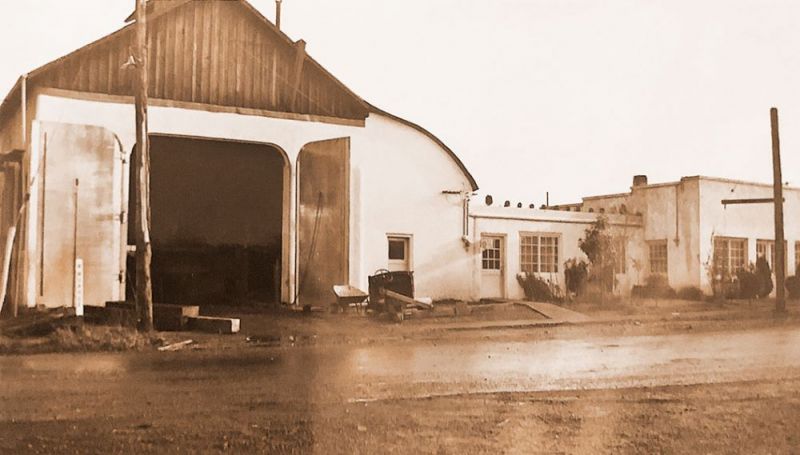
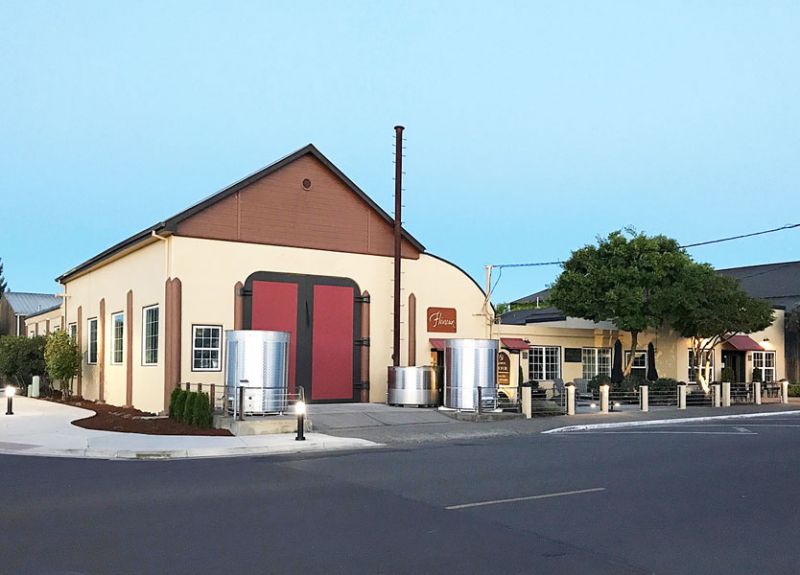
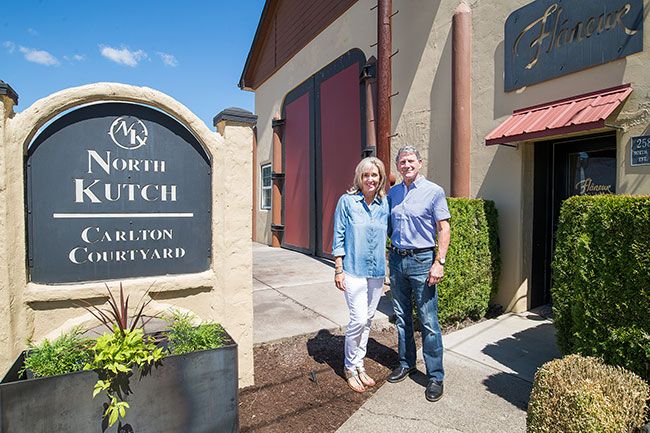
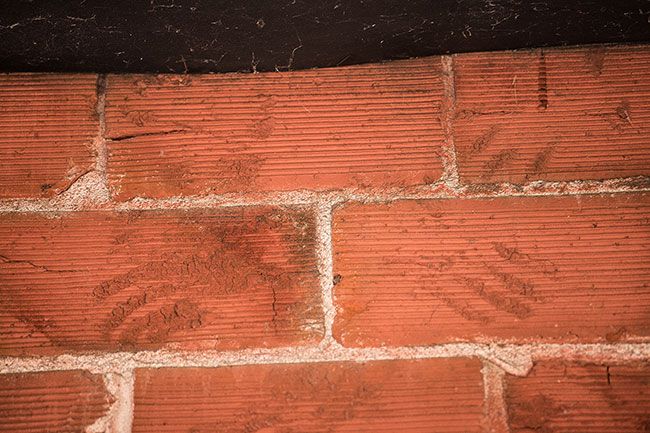
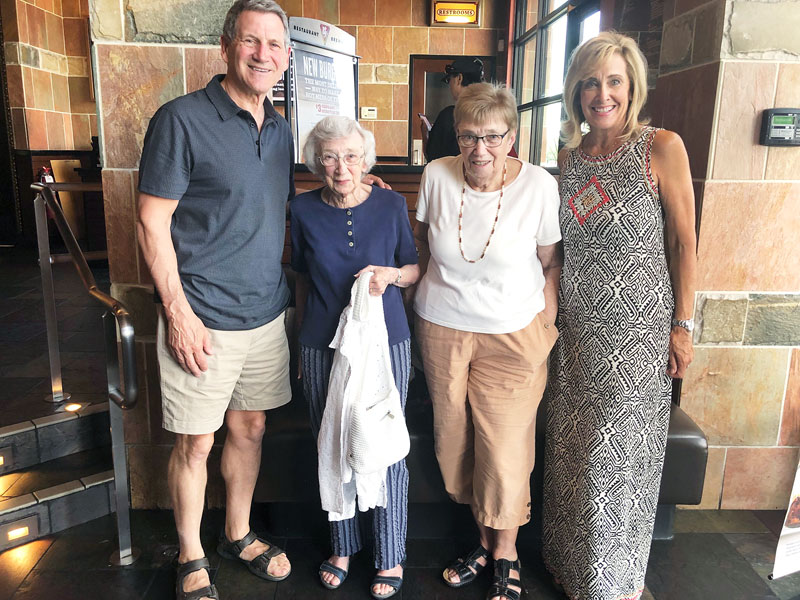




Comments